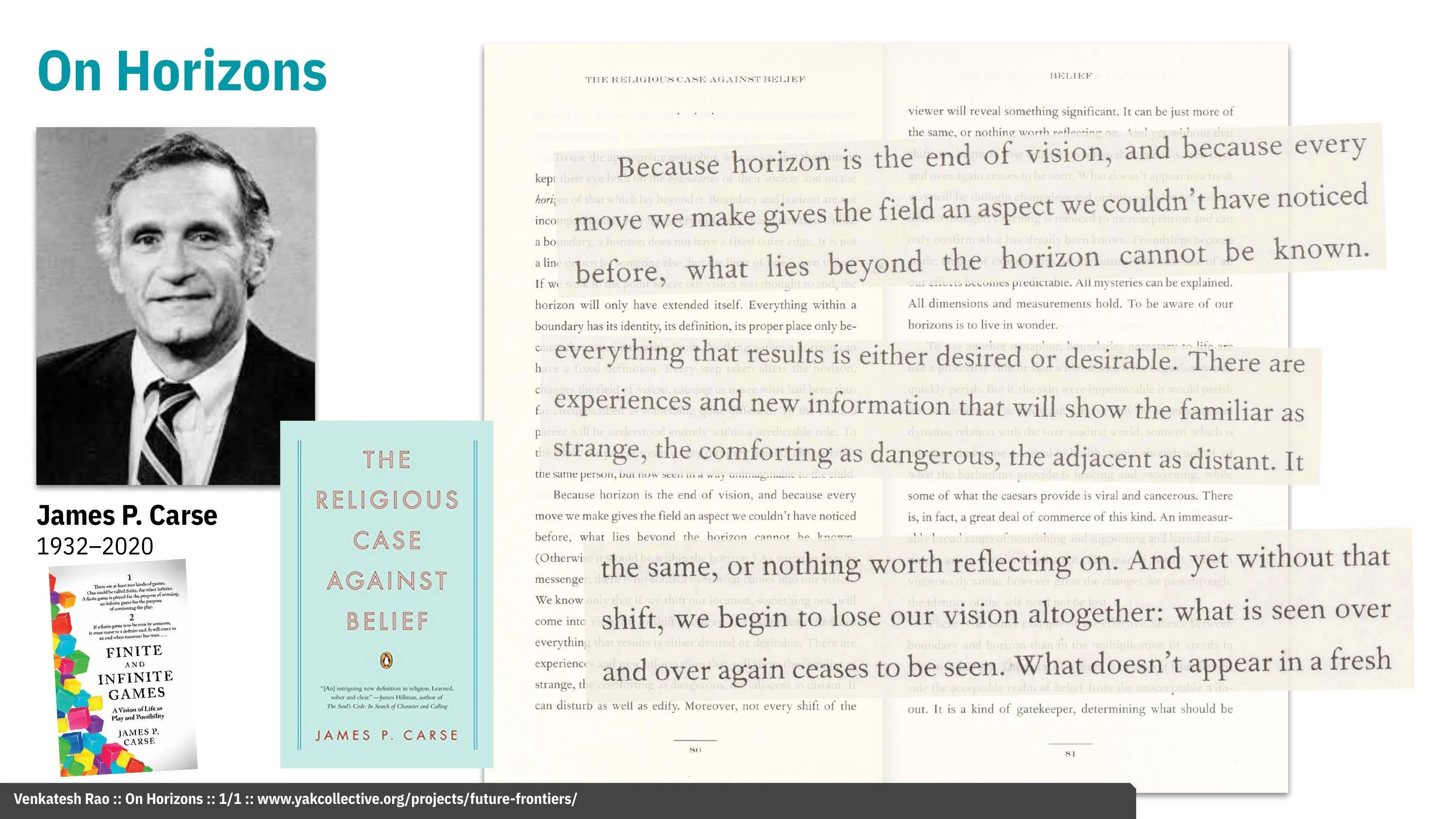
Carse photo from Simon & Schuster; collage by Jenna Dixon
On Horizons
#philosophy
Because horizon is the end of vision, and because every move we make gives the field an aspect we couldn’t have noticed before, what lies beyond the horizon cannot be known. […] There are experiences and new information that will show the familiar as strange, the comforting as dangerous, the adjacent as distant. […] Moreover, not every shift of the viewer will reveal something significant. It can be just more of the same, or nothing worth reflecting on. And yet without that shift, we begin to lose our vision altogether: what is seen over and over again ceases to be seen.
— James P. Carse, The Religious Case Against Belief, pages 80–81
Frontiers are essential food for the psyche, for a species with the temporal imagination to see past the limits of individual mortality. Frontiers are spaces where moving towards horizons results reliably, if not predictably, in encounters with novelty. And it is the endless supply of novelty flowing across the frontier horizons of humanity that makes it possible to play what philosopher James Carse called the infinite game, where the goal is not to win, but to continue the play.